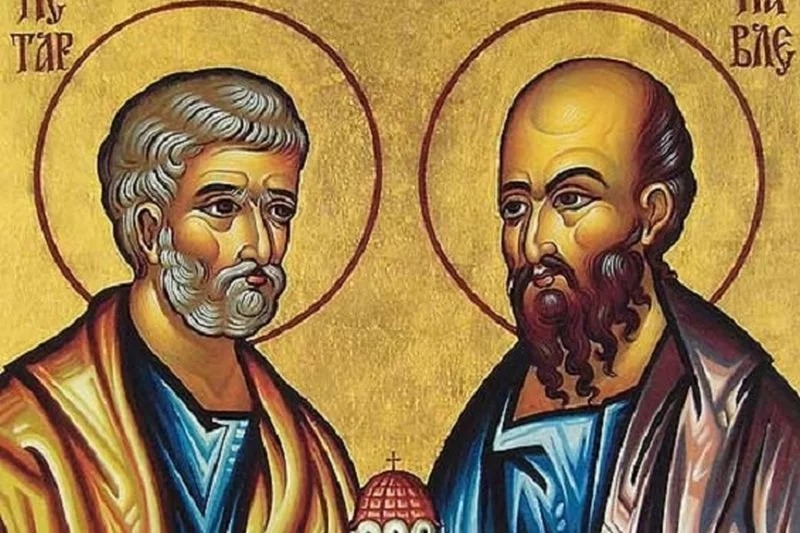Our early Church martyrs
29 June, 2025 Saints Peter and Paul, Year C
Matthew 16:13-19

In this week’s gospel reading (Matthew 16:13), Jesus asks His disciples, “Who do people say the Son of Man is?”. The disciples offer various answers, including that some believe Jesus to be John the Baptist, Elijah, or Jeremiah.
However, when Jesus presses further, asking, “But what about you? Who do you say I am?”, it is Simon Peter who responds emphatically, “You are the Messiah, the Son of the living God.”
This confession of faith is a pivotal moment in the gospels. Peter, inspired by divine revelation, recognises Jesus not just as a prophet but as the long-awaited Messiah, the Son of God. Jesus’ response to Peter’s declaration is both affirming and momentous. He tells Peter, “Blessed are you, Simon son of Jonah, for this was not revealed to you by flesh and blood, but by my Father in heaven.” Jesus then declares that Peter is the rock upon which He will build His Church: “And I tell you that you are Peter, and on this rock I will build my church, and the gates of Hades will not overcome it.”
The name “Peter” itself comes from the Greek word petros, meaning “rock,” which establishes a direct connection to Jesus’ words. The passage continues with Jesus giving Peter the “keys of the kingdom of heaven,” granting him authority to bind and loose on earth, as it will be in heaven. This confers a unique leadership role on Peter in the early Church, establishing his primacy and special role among the apostles.
The roles of Saints Peter and Paul in the early Church are central to understanding the growth and spread of Christianity. Both apostles are foundational figures, each contributing uniquely to the establishment of Christian teaching and community.
Peter is often considered the first pope of the Roman Catholic Church, based on the belief that Jesus entrusted him with the authority to lead His Church. Peter’s leadership and his martyrdom in Rome further solidify his position as a central figure in Christian tradition.
Peter’s role as the rock upon which the Church is built signifies stability, continuity, and faithfulness in Christ’s mission. The Church sees Peter’s authority, symbolised by the keys of the kingdom, as essential in guiding the faithful and preserving the integrity of Christian teaching.
While Peter was the leader of the early Church, Paul was the great missionary who brought Christianity to the Gentiles. He too was martyred. Paul’s letters (Epistles) form a significant portion of the New Testament, shaping Christian doctrine, ethics, and theology. His conversion from Saul, a persecutor of Christians, to Paul, an ardent missionary, serves as a powerful testimony to the transformative power of Christ. Paul’s deep theological insights, especially concerning grace, salvation, and the nature of the Church, made him instrumental in spreading Christianity beyond its Jewish roots.
Though Peter and Paul had different missions, their combined efforts were crucial to the growth and establishment of the early Church. Their martyrdoms – both in Rome, under the reign of Emperor Nero – are commemorated each year on June 29.
W Chris Hackett
© Majellan Media 2025
We encourage you to share and use this material on your own website. However, when using materials from Majellan Media, please include the following in your citation: Sourced from www.majellan.media
